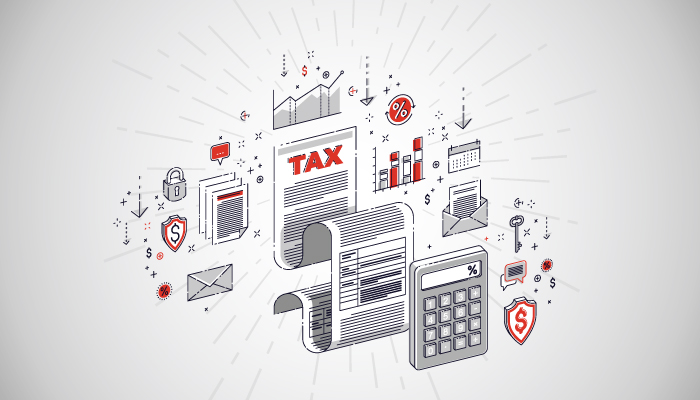What You Should Pay Attention to When Selling Parts Online

Online parts and accessories eCommerce is a great source of revenue for many dealers. By moving their parts departments online, dealerships have the opportunity to tap into a market set to hit $20 billion by the end of this year. However, a 2018 Supreme Court ruling could be putting dealerships and their parts business at risk if they do not pay attention.
South Dakota v. Wayfair, Inc. ruled that states are allowed to charge taxes on purchases made from out-of-state sellers, even if the seller doesn’t have a physical presence in that state. What this means for dealers selling online is that if they are selling to customers in different states, they are on the hook for charging taxes to the states the customers live in.
It’s important that dealerships review the collection requirements and collection compliance regulations to protect themselves from unsolicited tax violations. It’s also important to educate themselves on the ways they can simplify taxes with regards to what are called marketplace facilitator laws.
Understanding a nexus
To be liable for the collection and remittance of sales tax, a dealer must achieve a nexus in the state they are conducting business. There are a few ways a nexus can be established; however, the two most common are having a physical presence within the state they’re selling to and meeting an “economic threshold.”
The criteria for a physical nexus can be met by having any of the following within that state:
- A physical storefront
- A product warehouse
- Storage property within a facility
- Fulfillment centers
On the other hand, an economic threshold is based on a specific volume of transactions or revenue. There are more than 30 states that participate in these laws and many of them have different thresholds. This is why it’s important for dealers to find the least tedious way to monitor nexus compliance.
Paying the states that you owe money
Once your dealerships figures out the nexus for the states it is doing business or has done business in, you have to register with that state, begin collecting taxes, and remit tax payments to those states.
This is where things get tricky. Many states have multiple tax jurisdictions that you might need to register for separately. Additionally, some states differentiate between sales tax, seller’s use tax, and consumer’s use tax on registration applications and tax returns. So, in addition to determining where to register, your dealership has to figure out which taxes it’s responsible for.
It might sound like an overwhelming process, but the most important thing to do first is to get registered — collecting taxes without registration is illegal. Once the registration is complete, your dealership will have to start collecting taxes immediately.
Avoid the risks

When selling online, state government entities expect you to not only charge sales tax but to collect and remit it as well. Since sales tax is one of the largest income sources for states, they don’t take it lightly. If you fail to charge the correct sales tax to your buyers, they will come for you and expect you to pay that money somehow.
This puts your dealership at risk of being audited, which could cost your dealership a lot of money. So, when selling parts and accessories online, it’s important that you are filing all the right taxes appropriately to avoid violations.
Find a solution to streamline the process
Dealers need the right people on their side when it comes to collecting and remitting taxes if they’re selling online across state lines. However, your internal finance team may not have the time or resources to handle all of the calculating, collecting, remitting, and reporting themselves. That’s why it may be easier to find a vendor that’s experienced with sales tax compliance.
For example, RevolutionParts builds and operates online part-selling platforms on behalf of our partners. We are considered a “marketplace” with the legal authority to file sales taxes on behalf of our customers. We make sure that the proper tax is collected, dealers are in compliance with tax regulations, and they have access to all reports distributed to tax authorities.
Find your dealership a partner that’s looking out for your best interest. The last thing we want to see is a dealer being audited for improper tax filing! Make sure you understand the tax laws in the states you sell in, and that your dealership has the means necessary to collect and remit them legally.
Sources:
Ibrahim Mesbah
DMM Expert
Ibrahim Mesbah is the Co-Founder and CEO of RevolutionParts, which transforms the way parts buyers and sellers connect.
A technologist, founder, and CEO, Ibrahim is passionate about marketplaces, payments, and eCommerce. Having spent the last decade leading the RevolutionParts platform, which has powered more than $3 billion in parts and accessories sales.
View full profile